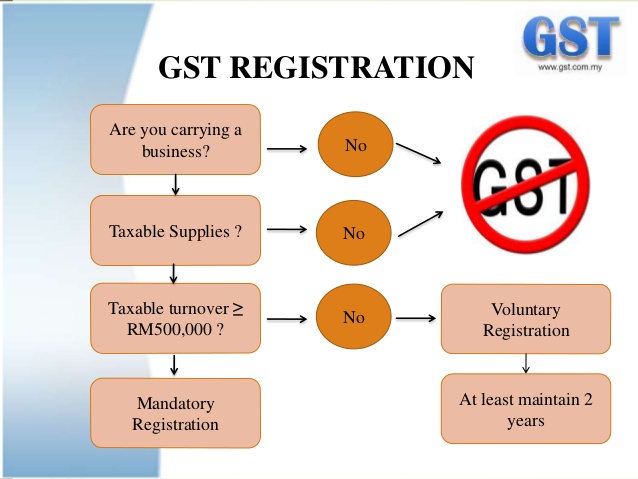Contrast and Choose the most effective GST Registration Services in Singapore for Your Requirements
Contrast and Choose the most effective GST Registration Services in Singapore for Your Requirements
Blog Article
From Beginning To End: The Ultimate Roadmap to GST Enrollment for Organizations Looking For Financial Stability
Navigating the complexities of Item and Provider Tax (GST) enrollment is an important action for companies making every effort for financial stability. From comprehending the fundamental concepts of GST to following post-registration standards, the procedure can seem daunting at very first glance. Nonetheless, damaging down the roadmap into workable steps can improve the registration trip for organizations seeking to improve their economic standing. Let's discover the essential parts that comprise this supreme roadmap and discover exactly how each stage adds to laying a solid structure for economic success.
Comprehending GST Basics
Diving into the essential principles of Item and Provider Tax (GST) is necessary for gaining a detailed understanding of its effects on businesses and the economy. Input Tax Obligation Credit (ITC) is a considerable feature of GST, enabling organizations to declare credit history for tax obligations paid on inputs, minimizing the general tax obligation problem. Recognizing the basics of GST is crucial for organizations to conform with tax obligation laws, handle their funds efficiently, and contribute to the country's financial growth by taking part in a transparent tax system.
Eligibility Standards for Enrollment
As of the existing regulations, the threshold limit for GST registration is a yearly aggregate turn over of 40 lakhs for organizations operating within a state, except for unique category states where the limit is 20 lakhs. Furthermore, certain services are called for to register for GST irrespective of their turnover, such as interstate distributors, casual taxable individuals, and businesses responsible to pay tax obligation under the reverse fee mechanism. It is vital for services to thoroughly evaluate their turn over and transaction kinds to establish their GST enrollment responsibilities properly.
Files Needed for Registration
Having fulfilled the eligibility standards for GST registration, companies need to currently ensure they have the requisite papers in position to proceed with the enrollment process efficiently. The files needed for GST enrollment generally consist of evidence of organization constitution, such as partnership deed, enrollment certificate, or consolidation certificate for different kinds of organizations. Additionally, services need to offer papers establishing the principal workplace, such as a rental contract or power expense. Frying pan card of business, in addition to the identity and address proof of promoters/partners/directors, are necessary for confirmation functions. Financial institution account statements, in addition to canceled cheques or a duplicate of the bank passbook, are called for to verify the financial details important source provided during enrollment. Organizations should have electronic trademarks ready for the authorized notary. Making sure all these documents are arranged and readily available will quicken the GST registration procedure, making it possible for organizations to follow tax obligation laws flawlessly.
Step-by-Step Registration Refine
Starting the GST enrollment procedure involves a collection of structured actions to make certain a smooth and compliant enrollment for services. The initial step is to see the GST site and submit the enrollment form with accurate information of business entity. Following this, the candidate receives a Momentary Referral Number (TRN) which is made use of to resume the application procedure if it's not completed in one go.
Following, all required records based on the list provided by the GST portal requirement to be posted. These papers usually include proof of service registration, address and identification proofs of promoters, economic declarations, and service entity's frying pan card.

Post-Registration Conformity Guidelines

Final Thought
In conclusion, companies looking for monetary stability needs to recognize the fundamentals of GST, satisfy qualification requirements, collect needed files, adhere to the step-by-step registration procedure, and abide by post-registration guidelines - Best GST registration services in Singapore. By sticking to these actions, organizations can guarantee conformity with tax guidelines and keep financial stability over time
Additionally, certain businesses are called for to sign up for GST regardless of their turn over, such as interstate vendors, laid-back taxable persons, and businesses accountable to pay tax under the reverse fee device.Having actually met the qualification requirements for GST registration, organizations should currently ensure they have the requisite files in area to proceed with the registration procedure successfully. The documents needed for GST enrollment commonly include evidence of service constitution, such as More hints collaboration deed, enrollment certificate, or consolidation certification for various types of organizations. Furthermore, companies require to provide documents developing the principal place of business, such as a rental arrangement or electricity expense.Commencing the GST registration process includes a series of structured steps to make certain a seamless and certified enrollment for services.
Report this page